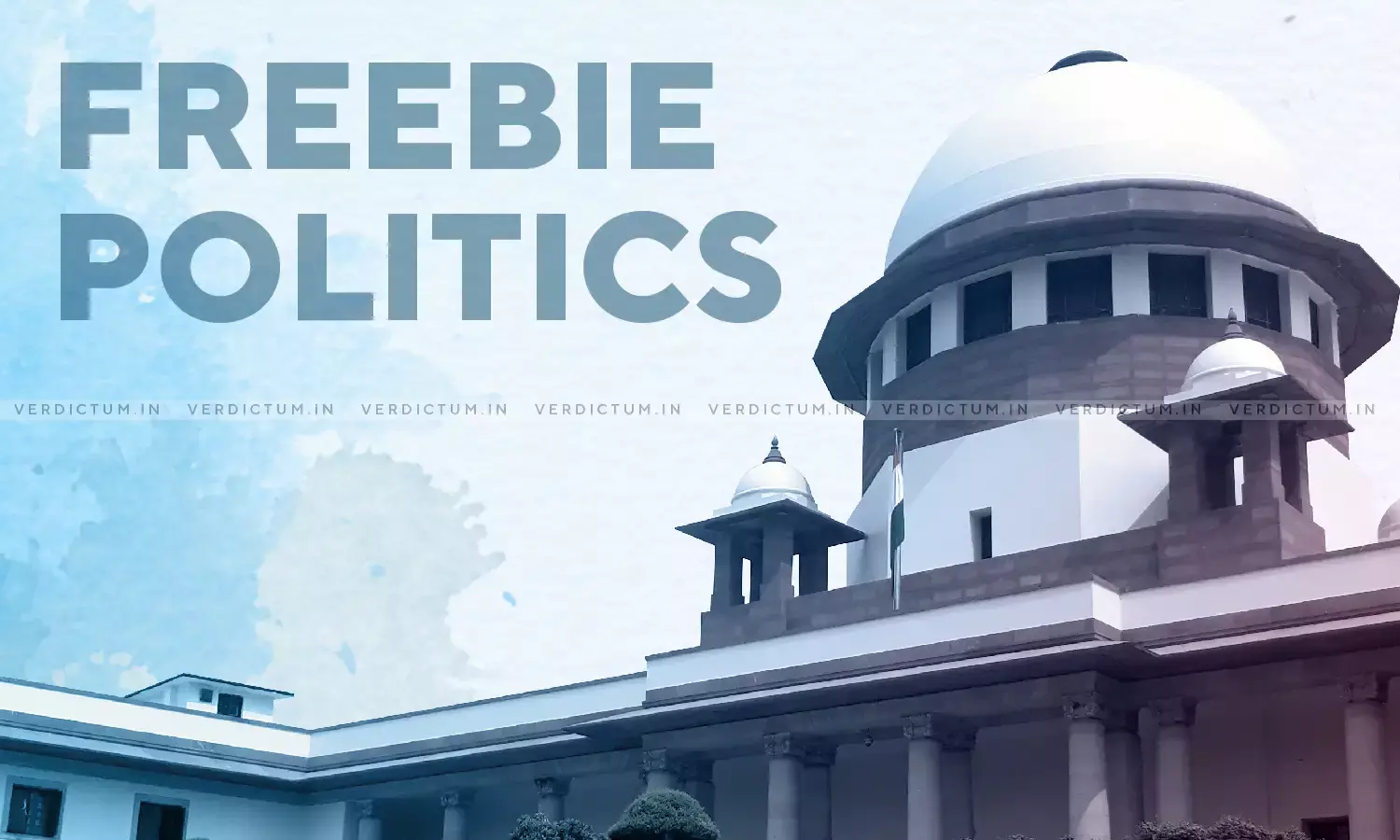Supreme Court Adjourns Hearing Of PIL Against Poll Freebies

The Supreme Court today adjourned the hearing of the PIL against promises made during the election by political parties for the distribution of freebies. Advocate Ashwini Kumar Upadhyay submitted that "there is an urgency", to which the Counsel for the respondent retorted that the "petition is politically motivated".
The Bench comprising Chief Justice UU Lalit and Justice Bela M Trivedi directed the matter to be listed before a Bench of three judges. "Considering the nature of the controversy and submissions made, let the matter be listed as early as possible before three judges bench", the Court ordered.
The Bench declined Upadhyay's suggestion to constitute an Economic Assessment Committee (to be chaired by Chief Election Commissioner) to evaluate economic repercussions.
Earlier, on August 26 2022, a Bench led by then CJI NV Ramana directed the listing of the matter before a three-Judge bench. The Court said that it will have to reconsider its 2013 judgment in the case of S. Subramaniam Balaji v. State of Tamil Nadu, wherein it was held that pre-election promises do not fall within the ambit of corrupt practices as specified under Section 123 of the Representation of the People Act, 1951.
The PIL raise two important issues, namely, influencing voters by pre-elections freebies and capturing vote banks by granting benefits that do not relate to any welfare measure or developmental activity.
The plea filed by Advocate Ashwini Kumar Upadhyay demands that those political parties which promise to distribute irrational 'freebies' using taxpayer money may be deregistered and their symbols may be seized. Further, the petition contends that such pre-election promises have large-scale impacts on the economy of the state.
The Election Commission of India has earlier stated before the Court that it has limited scope to interfere in promises made by political parties/candidates. The public interest litigation (PIL) claims that such arbitrary promises or irrational freebies to lure voters vitiate the purity of the election process.
In his written submission before the Supreme Court in petitioner-Ashwini Kumar Upadhyay had submitted that he is only questioning the wisdom of political parties to announce freebies recklessly, just to gain power, without regard to the avenues from where that political party will be generating the additional revenue, to meet the expenditure involved in the said freebies.
Cause Title- Ashwini Kumar Upadhyay versus Union of India (WP(C) 43/2022)

